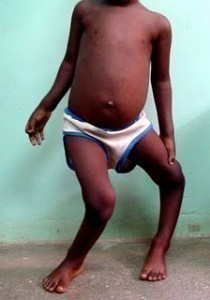Dehydration Symptoms
Also referred to as hypohydration, dehydration is a medical condition wherein patients are suffering from excessive loss of water inside their bodies. Numerous factors can lead to this problem including lacrimation, hyperthermia and diarrhea. Meanwhile, it can also be a result of infectious diseases like yellow fever, gastroenteritis and cholera. Early symptoms include decreased blood pressure, muscle cramps and headaches. Here is a closer look at the different minor and major dehydration symptoms, including the possible diagnostic methods and treatments for this serious medical problem.
Signs of Dehydration
Patients of this medical condition manifest many different signs. Some of them include decreased urine output, sleepiness and muscle weakness. Furthermore, it is also associated with other highly noticeable symptoms like lightheadedness, dizziness and a feeling of thirst. In severe cases, the major signs are unconsciousness or delirium, fever and rapid heartbeat. Likewise, patients are more likely to have low blood pressure, lack of skin elasticity and sunken eyes.
Individuals suffering from severe dehydration commonly experience lack of sweating. Simultaneously, they also have super dry mucous membranes, skin and mouth. In children, its symptoms include extreme sleepiness or fussiness. On the other hand, adults may manifest signs like confusion and irritability.
It is highly advisable to consult doctors right away in case of three straight days of moderate diarrhea. Consider it a medical emergency if patients suffer from episodes of vomiting that last for more than eight straight hours. Even without fever or vomiting, severe diarrhea is always a cause for serious concern.
Dehydration Diagnosis
When diagnosing dehydration, physicians usually examine the physical signs and other important symptoms of this medical condition including the lack of skin elasticity, sunken eyes and little urination. After examining them physically and checking their vital signs, doctors can put their patients under other reliable and significant diagnostic procedures like blood tests. These tests are important to evaluate kidney function, look for signs of concentrated blood and determine the potassium and sodium levels inside the body. Patients may also need to undergo urinalysis in order to determine the presence of ketones or carbon compounds in the urine.
Dehydration Treatment
No matter how severe the condition of patients, it is best to replace lost fluids right away. For faster relief, patients can take oral rehydration solutions. For children and infants with fever, vomiting and diarrhea, it is good to give them Pedialyte. When babies are sick, it is advisable for mothers to continue breastfeeding. In case of severe dehydration, patients can receive intravenous hydration. It is also good to give them sports drinks as temporary relief.







